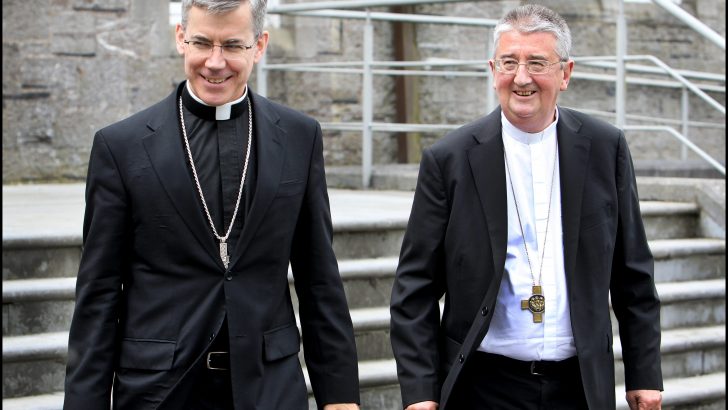Can markets ever be ‘moral’ and can they act ‘morally’? The banking and debt crises which are reaching into every corner of Europe are prompting this question with ever more urgency.
Recently, the British Prime Minister, David Cameron called for a ‘moralised’ form of capitalism, and the Catholic Bishops of England and Wales have long fretted over the decline of trust in economic institutions.
In America, the list of major financial firms which have been charged with fraud is staggering: Goldman Sachs, Citigroup, J.P. Morgan, Morgan Keegan and many more which have hitherto seemed the height of respectability.
We think too of Enron, the Lehmann Brothers, Bernie Madoff and others who have been involved in what must be called financial immorality. And the Irish banking scandals hardly need repeating.
All over, new regulation is called for, but can regulation halt the Darwinian impulse which seems to drive market behaviour?
There was a report last weekend about the current state of the euro, and whether it can survive into the future. If Greece returns to the drachma, Spain to the peseta and Portugal to the escudo, the American currency expert Larry Hatheway said that market speculators would be gathering like wolves ready to ‘pick off’ one currency after another.
As in the law of natural selection, the weakest currencies would be ‘picked off’ first.
It is quite a theological question: can the wolf be restrained? Can people be persuaded to act in the ‘common good’ when it comes to money matters?
Can the richer Greeks, who are now taking their deposits out of their country, be persuaded to consider the common good first?
Some say that money is like water: it will go where it flows, and nothing can stem its course. You can no more control the money markets than you can stop people betting on the 2.30 at Cheltenham.
But you can try to teach and uphold notions of honour, conscience, and, above all, not cheating the poor, and that is something that surely all our Church leaders should agree to do.
Choosing a partner carefully
According to the obituaries of the late singer Whitney Houston, she had been a steady young girl, dedicated to her gospel music, a keen church-goer, with a protective family life. She was known as the ‘Prom Queen of Soul’ with a clean-cut and wholesome image.
It was, it is claimed, only after her marriage to the rock singer Bobby Brown that Whitney’s personality seemed to change.
Bobby Brown had a reputation for ‘wild behaviour’ and introduced his wife to ‘a life of parties and late nights’. There were rumours of violence and hard drugs, and, in 2000, Whitney was arrested for possession of cannabis. She began to be unreliable — often a sign of addiction — and concerts were cancelled. It is thought that her death was caused by a mixture of drugs and alcohol.
Why does a nice, church-going young singer seem to go off the rails in adulthood? Is it the pressure of fame? Was she too protected by her family when she was a youngster, and not given enough opportunity to have fun?
Or is it the old problem that bedevils the psychology of too many women: being attracted to bad boys who bring negative influences to a relationship?
Jane Austen knew that it mattered very much who a girl matches up with and marries. In this week of St Valentine, and in the light of Whitney Houston’s ultimately tragic life, it is worth reiterating this: choose your partners, ladies — carefully!
The embassy debate
There seems to be a gradual and growing groundswell of opinion that the Government should not have closed our Vatican embassy.
I certainly believe it was an ill-considered move — not so much for faith reasons as on the more pragmatic grounds of networking usefulness for Ireland.
But in an essay in the current edition of The Furrow, the Cork writer T.P. O’Mahony argues that there have long been voices within the Church questioning the Vatican’s ”need to maintain a global network of ambassadors or nuncios”.
The much-respected Cardinal Suenens of Brussels thought the structure an anomaly.
Should the Vatican be regarded as ”a state” at all?
The essay ‘Is Vatican Statehood of Service to the Church?’ is thoughtful, knowledgeable and well worth the read, although I think the leading challenger of the Vatican’s status, (cited by T.P.), Geoffrey Robertson, is overly-legalistic in his analysis.
Culture and history are just as important as legalistic niceties when defining what is a ‘state’.
However, T.P. really does have a sincere point in writing that ”the Church’s primary function is to bear witness to the Gospel of Jesus Christ” and that vision should never be lost in the debate over diplomatic connections.


 Mary Kenny
Mary Kenny Archbishop Charles J Brown Papal Nuncio to Ireland and Archbishop Diarmuid Martin. Pic: Steve Humphreys
Archbishop Charles J Brown Papal Nuncio to Ireland and Archbishop Diarmuid Martin. Pic: Steve Humphreys